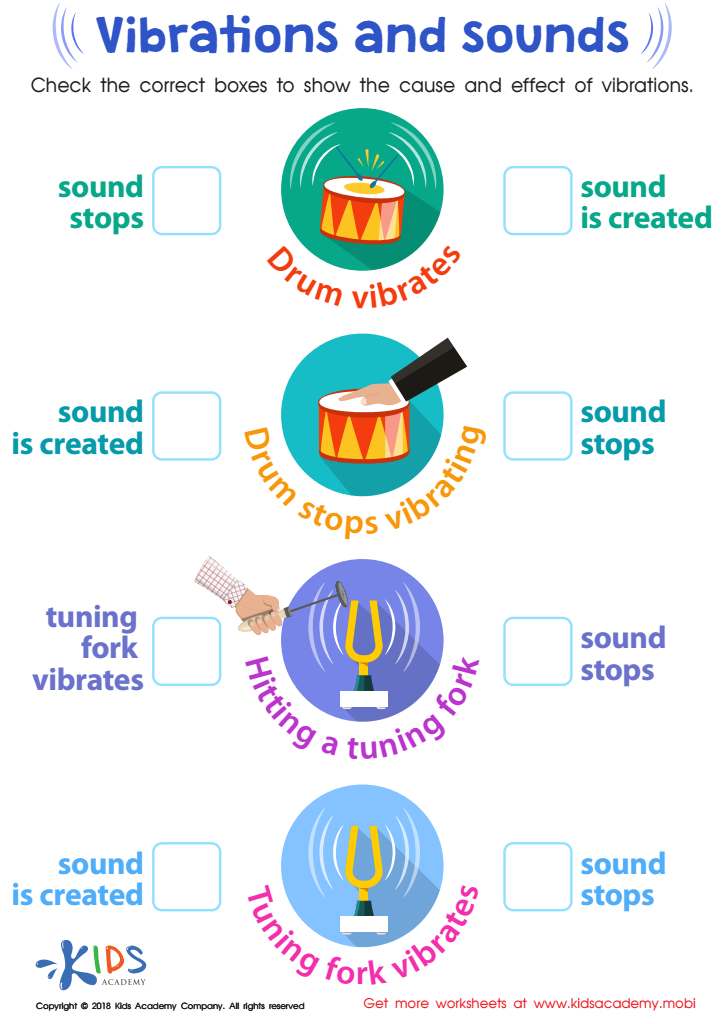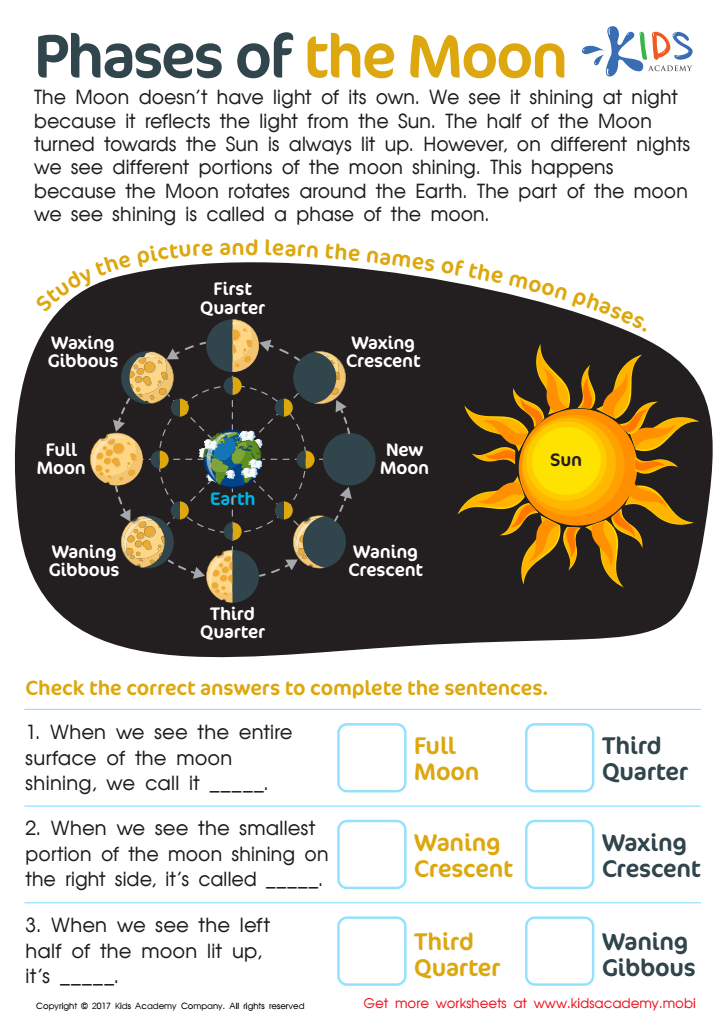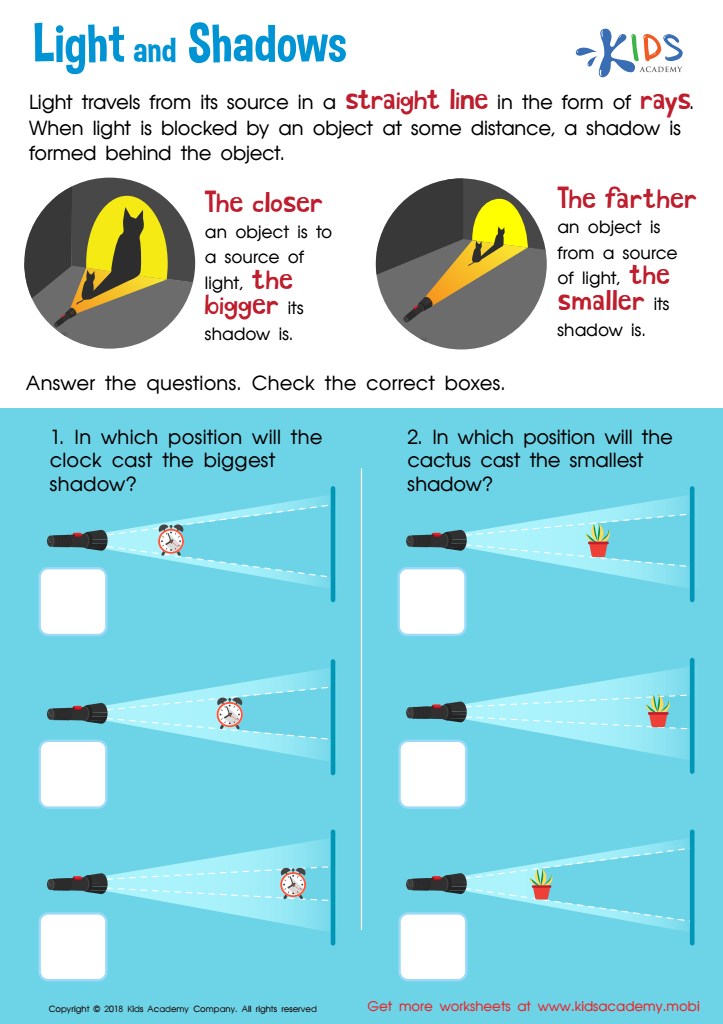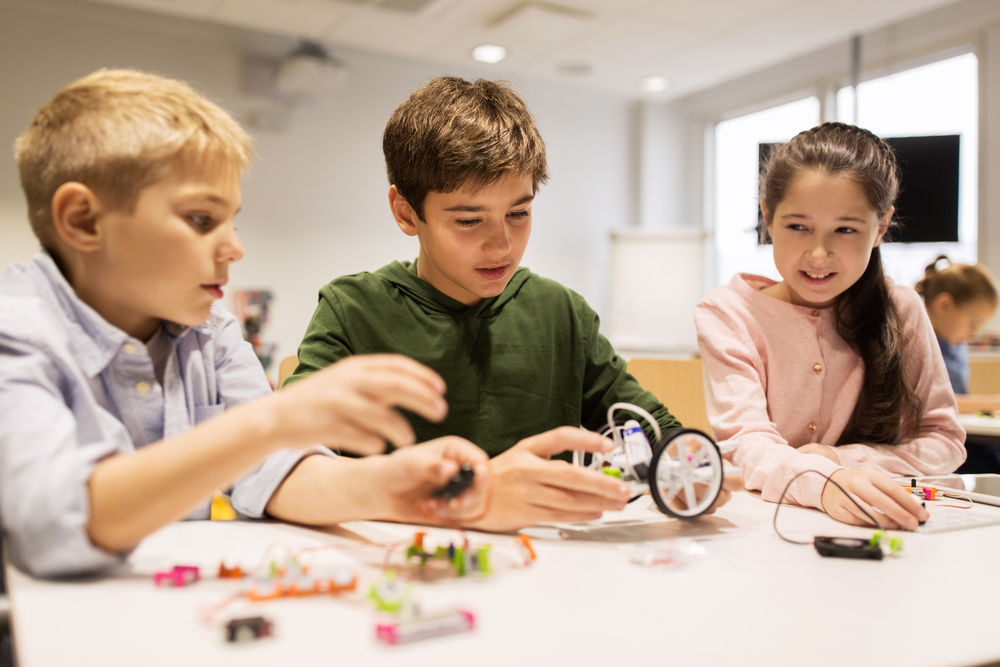Observational skills development Normal Science Worksheets for Ages 6-9
3 filtered results
-
From - To
Unlock the power of observation with our "Observational Skills Development Normal Science Worksheets" designed for ages 6-9. These engaging, printable worksheets provide young learners with hands-on activities to enhance their ability to notice details and draw conclusions about the world around them. Each worksheet encourages exploration of nature, critical thinking, and scientific reasoning through fun exercises like comparing shapes, observing plant growth, and recording findings. Perfect for classrooms or home use, these resources support early science education by fostering curiosity and a love for learning. Set your child on a path to becoming a keen observer and budding scientist today!


Vibrations and Sounds Worksheet


Phases of The Moon Worksheet


Light and Shadow Worksheet for Grade 3
Parents and teachers should prioritize the development of observational skills in children aged 6-9 because these skills are foundational for learning and critical thinking. At this age, children are naturally curious and eager to explore their surroundings. Encouraging observational skills helps them make sense of the world through detailed observation of their environment, which is essential in scientific inquiry.
Strong observational skills enable children to notice and appreciate patterns, differences, and changes in what they see. This practice not only enhances their understanding of natural science but also builds a foundation for problem-solving and analytical thinking. Engaging children in activities that promote observation—like nature walks, simple experiments, or group discussions—hones their ability to collect data and draw meaningful conclusions.
Moreover, observational skills contribute to literacy and numeracy by helping children describe their findings and organize information coherently. By nurturing these skills, parents and teachers are not just fostering academic success; they are also cultivating lifelong learners who are prepared to navigate a complex world. Ultimately, investing in the development of observational skills supports overall cognitive growth and prepares young learners for future challenges and opportunities in science and beyond.
 Assign to My Students
Assign to My Students



















